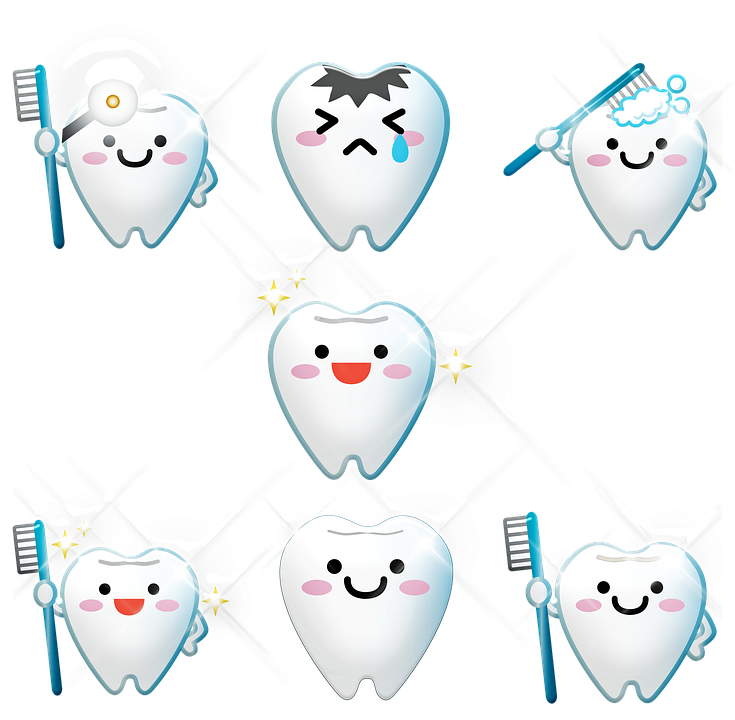Preventive measures are one of the firsts that you include in your day-to-day routine. Preventions come first. Cure follows, if necessary. Your dentist would always advise you to sternly adhere to preventive measures in order to possess good oral health. Curative measures are not what any individual or dental professional contemplates. Your dentist, therefore, during your scheduled regular visits, advice you upon hygienic oral habits so that you could avoid frequent dental visits in the future!
Poor oral hygiene is one of the pivotal reasons for tooth decay. Bacteria feed upon food particles that tend to remain back in your oral cavity (due to lack of cleaning after eating or sipping on beverages). Fermentation breaks especially the sugar content of foods to release acids. These acid attacks damage your enamel. Coupled with this, plaque builds up and hardens to form tartar if neglected further. This damages both the look and functionality of your tooth.
Therefore, a strict preventive oral care measure is quintessential for every individual to prevent any gross amount of tooth decay or damage. Some of the daily practices that could serve to be tips to help prevent tooth decay are:
- Your daily brushing should be preferably after meals and especially before going to bed. Remember, nighttime brushing is a must.
- Inter-dental cleaners are available in the market. It is very important to use them or use dental floss at least once daily.
- Use a tooth containing fluoride. Fluoride activity participates in cavity-fighting activities within your oral cavity.
- The mouthwash to be used daily can be a fluoride mouthwash or one that is antiseptic. This effectively helps in fighting the bacteria and germs that are responsible for plaque building inside your mouth.
- Limit your diet to balanced meals only. The more sugary items and snacks you munch upon, more acids are generated within your mouth. This attacks your teeth enamel and is responsible for putting that yellowish or brownish tint on your teeth!
- Check out if your dentist offers supplemental fluoride applications. It keeps your teeth strong and in good health!
- Dental sealants are a safe and effective formula for keeping your back teeth (the molars) in good health. It actually puts a protective plastic coating on the chewing surfaces of your molars.
A RESEARCH FINDING:
A recent study on Pit and fissure sealants for preventing dental decay in permanent teeth reads:
Evidence suggests that fissure sealants are effective in preventing caries in children and adolescents compared to no sealants. Effectiveness may, however, be related to caries incidence level of the population. Resin‐based sealants applied on occlusal surfaces of permanent molars are effective for preventing caries in children and adolescents. However, there was insufficient evidence to judge the effectiveness of glass ionomer sealant or the relative effectiveness of different types of sealants.
Cited: Ahovuo‐Saloranta A, Forss H, Walsh T, Nordblad A, Mäkelä M, Worthington HV. Pit and fissure sealants for preventing dental decay in permanent teeth. Cochrane Database of Systematic Reviews 2017, Issue 7. Art. No.: CD001830. DOI: 10.1002/14651858.CD001830.pub5.
- Even when you are luckily not faced with any dental issue, do keep up with your regular dental visits (at least twice a year) for professional cleanings and oral exams.
- Drinking fluoridated water is also of great help for your oral health. It protects the children of your family from tooth decay too.
Prevention of tooth decay is always not as easy as it sounds like. Despite taking the preventive measures, we sometimes become too lazy to stick to our oral care routine. This paves the way for a bacterial build-up in between teeth gaps and leads to further decay.
Latest research has of late developed (and is still working on) some decay prevention methodologies. Among them, the ones that need a special mention are:
- A study found that a chewing gums containing the sweetener xylitol temporarily retarded the growth of bacteria thus preventing tooth decay
- Materials that slowly release fluoride over time are being researched. They would necessarily be placed between your teeth or in pits and fissures of teeth.
To cite an evidence from a recent research paper titled Chewing gum designed to prevent tooth decay by blending a soluble extract of cacao bean husk , it can be stated that:
The major cause of decayed teeth is that glucan is created from sugar by the bacteria existent in the oral cavity and it forms plaque by being attached to the surface of tooth. Thus, teeth are decayed by those bacteria based on such plaque.
In order to prevent teeth from decaying, dextranase and mutanase are used as enzymes which decompose glucan. In the chewing gum industry, tooth decay prevention chewing gum is now being tested. For example, chewing gum in which sugar is replaced by other sweetening materials and chewing gum in which dextranase and mutanase are blended are now being produced.
The volume of research in this particular field itself reveals that the problem of tooth decay is a widespread issue. This is especially so because it majorly affects the child and teenage population. Although there are ample treatment alternatives to resolve tooth decay, yet, taking the preventive measures early and regularly, heavily counts!


